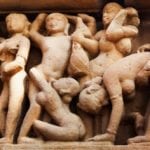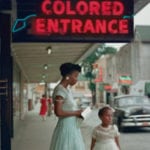 Mysteries
Mysteries  Mysteries
Mysteries  History
History 10 Surprising Stories About the Texas Rangers
 Humans
Humans 10 Philosophers Who Were Driven Mad by Their Own Theories
 Miscellaneous
Miscellaneous 10 Video-Game-Worthy Weapons and Armors from History
 Weird Stuff
Weird Stuff 10 Psychics Who Accurately Predicted Wartime Events
 The Arts
The Arts 10 Pieces of Art Inspired by a Broken Heart
 Health
Health 10 Science Fiction-Sounding New Medical Treatments
 History
History 10 Surprising Facts About the Father of Submarine Warfare
 Space
Space Ten Astonishing New Insights into Alien Worlds
 Weird Stuff
Weird Stuff 10 Bizarre Summer Solstice Rituals Still Practiced Today
 Mysteries
Mysteries Top 10 Haunting Facts About the Ghost Ship MV Alta
 History
History 10 Surprising Stories About the Texas Rangers
 Humans
Humans 10 Philosophers Who Were Driven Mad by Their Own Theories
Who's Behind Listverse?

Jamie Frater
Head Editor
Jamie founded Listverse due to an insatiable desire to share fascinating, obscure, and bizarre facts. He has been a guest speaker on numerous national radio and television stations and is a five time published author.
More About Us Miscellaneous
Miscellaneous 10 Video-Game-Worthy Weapons and Armors from History
 Weird Stuff
Weird Stuff 10 Psychics Who Accurately Predicted Wartime Events
 The Arts
The Arts 10 Pieces of Art Inspired by a Broken Heart
 Health
Health 10 Science Fiction-Sounding New Medical Treatments
 History
History 10 Surprising Facts About the Father of Submarine Warfare
 Space
Space Ten Astonishing New Insights into Alien Worlds
 Weird Stuff
Weird Stuff 10 Bizarre Summer Solstice Rituals Still Practiced Today
10 Moments In American History, As Seen From The Other Side
There are two sides to every story. The version of history we hear is the one told by the country that comes out on top, and these days, American media is so ubiquitous that the American side of the story is usually the only one we know. But for every moment in American history, there’s another side to the story we rarely get to hear.
Every enemy that the United States faced saw themselves as the heroes. They have their own versions of these stories, and they’re full of details that the American history books leave out.
10 The American Revolution Started Because American Settlers Illegally Moved Onto Native Land
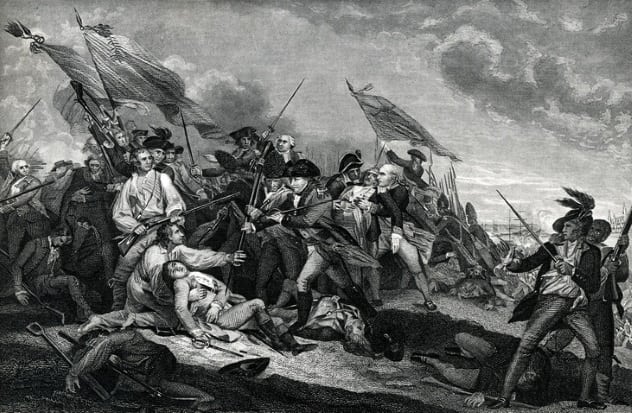
All those weird taxes that brought on the American Revolution weren’t just thrown at America for no reason. From the British point of view, the Americans brought those taxes upon themselves—because they just couldn’t stop killing Native Americans.
The British army had just finished swooping in to protect its American colonists from the French and Indian War, a conflict that the British firmly believed was America’s fault.[1] The Americans kept moving their properties into territories that legally belonged to France and were being used by Native Americans, and it caused so many fights that they ended up pulling Britain into an expensive war.
They had repeatedly warned the colonists not to move into French territories, and since the Americans had ignored them, they decided that the Americans could pay for the massive debt their war had caused by themselves. That’s where the taxes the Americans called “intolerable” began—they were supposed to be a way to make America pay back the debt they’d created.
From the British point of view, the ensuing protests across America were nothing more than a childish refusal to own up to their own actions.
None of the complaints made sense to the British. Their demands for “representation” seemed like a demand for special privileges, as several cities in parts of England didn’t have representation, either. And their demand to be allowed to expand further westward just made it seem that they hadn’t learned anything from their last mistake.
As far as the British were concerned, they weren’t stopping a revolution. They were just trying to protect a naive, headstrong colony from destroying itself.
9 The War Of 1812 Was The US Siding With Napoleon
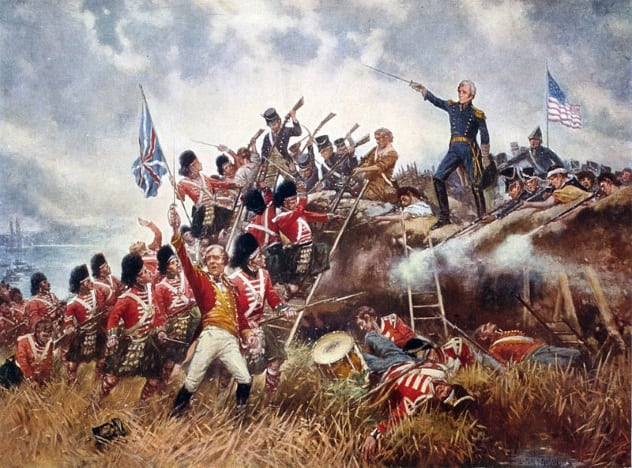
Officially, the United States declared war on Britain in 1812 because of “impressment.” The British were kidnapping American citizens and forcing them into the British Navy, and the Americans weren’t going to stand for it anymore.
Impressment, though, didn’t really become a major issue until 1811, and as far as the British were concerned, the war had started long before then. For them, it began in 1803, when Napoleon Bonaparte tried to take over the world—and the United States helped.
The Napoleonic Wars, in many ways, started with the Louisiana Purchase. Napoleon sold the Louisiana Territory to the United States because he needed the money to fund his invasion of Europe, and the US agreed, knowing full well what he was trying to do. In fact, part of the reason Thomas Jefferson signed off on the purchase was to get Napoleon out of the New World so that they wouldn’t have to deal with his warmongering madness.
Tensions grew when the British started stopping American trade ships from making their way to France, but those vessels were on their way to supply an army that was trying to conquer Europe. The British did start capturing sailors, but they insisted that they really were runaways from the British Navy.
From the British perspective, the War of 1812 was just an “annoying sideshow” in the middle of Napoleonic Wars.[2] They only spent seven percent of their military budget on it while dedicating the rest to fighting off Napoleon. And they weren’t going to put up a fight against the United States at all until the US started trying to take over Canadian territory.
8 The Texas Revolution Was Land Theft By Illegal Immigrants And Slavers
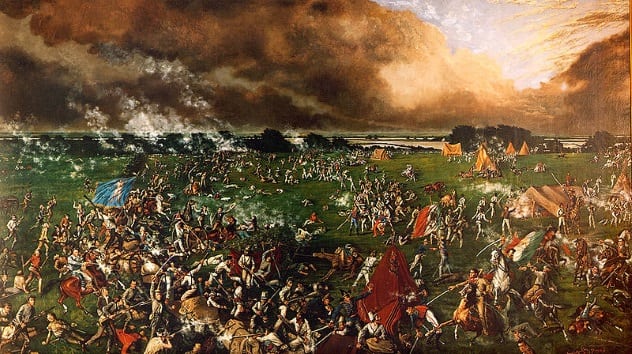
Texas’s battle for independence, from the American point of view, was a fight for freedom against a corrupt Mexican government. But the Mexicans saw it a little differently. As far they were concerned, the only people who wanted Texas to separate were Americans who’d never lived there and a handful of die-hard slaveowners.
Mexico abolished slavery in 1829, but Texas put up such a fight over it that they ended up having to let them keep their slaves just to stop them from revolting. Mexico had been slowly trying to introduce new anti-slavery laws to get rid of it once and for all, but Texas got furious every time.
It was actually one of the major complaints the Texans listed for the revolution. The Mexican government had offended them, they wrote, by “advising and procuring servants to quit the service of their masters.”
The other people protesting just plain weren’t from Texas. Most of the Texans protesting, they believed, were Americans who had lived there for a year or less, including the estimated 20,000 Americans who’d hopped the border into Texas illegally.[3]
There are some facts that back up the Mexican perspective. The man who wrote the Texas Declaration of Independence had barely lived there for a year, and as soon as the war was over, Texas brought slavery back in full force.
7 The Mexican-American War Was An Unjustifiable Invasion
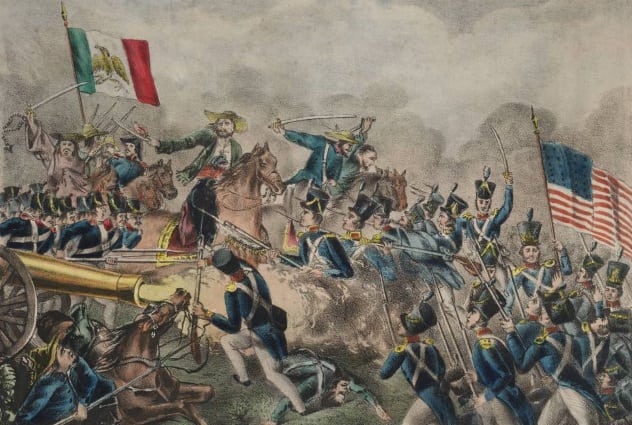
As far as Mexico is concerned, there’s no question who the “bad guy” was in the war they called the “US Invasion.” As one Mexican writer bluntly put it, “The Americans know that it was an unjust war.”
At the time, President James K. Polk defended his war with Mexico as a defense against a foreign attack. Mexico had attacked an American fort along the Rio Grande, which he heavily implied was part of an attempt to take back Texas.
The fort at the Rio Grande, though, was just bait. It’s generally accepted—not just in Mexico but by most historians—that Polk deliberately had the fort on the Rio Grande built on territory that Mexico believed to be their own, hoping that the Mexicans would attack it and give him an excuse to invade their country.
Polk had already been trying to convince Congress to go to war with Mexico for some time, and the Rio Grande skirmish was just an excuse. He swooped in, attacked, and claimed Mexican territory all the way to California as his own.
One Mexican newspaper, at the time, condemned Polk by saying: “The American government acted like a bandit who came upon a traveler.”[4]
A lot of Americans agreed. “That was a thing for every right-minded American to be ashamed of,” said Nicholas Trist, the man who negotiated the treaty that forced Mexico to give up its territory to the US. “I was ashamed of it, most cordially and intensely ashamed.”
6 The Union Wasn’t Really Fighting The Civil War To Abolish Slavery
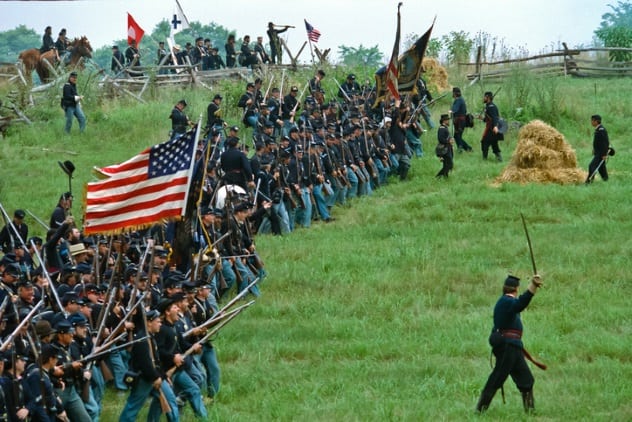
Most people will laugh at you if you try to suggest that the Confederate Army wasn’t really fighting the US Civil War so that they could keep their slaves. But even if the Confederates were fighting to keep slaves locked up, it doesn’t mean the Union was fighting to save them.
Abraham Lincoln repeatedly and explicitly said that the US Civil War wasn’t about freeing the slaves. He was fighting to keep the Union together, regardless of what happened to the slaves.
In a letter to Charles Lester, Abraham Lincoln wrote: “We didn’t go into the war to put down slavery, but to put the flag back.”[5] And, according to Jessie Fremont, he openly complained that slavery had ever even become part of the issue, saying that they “should never have dragged the negro into the war. It is a war for a great national object and the negro has nothing to do with it.”
To some Confederates, all that talk about abolition reeked of hypocrisy. And as the war raged on, some of them were willing to give up slavery altogether if it would help them win their independence.
“Slavery is one of the principles that we started to fight for,” one Confederate paper said, “[but] if it proves an insurmountable obstacle to the achievement of our liberty and separate nationality, away with it!”
5 The Emancipation Proclamation Was Meant To Militarize Slaves
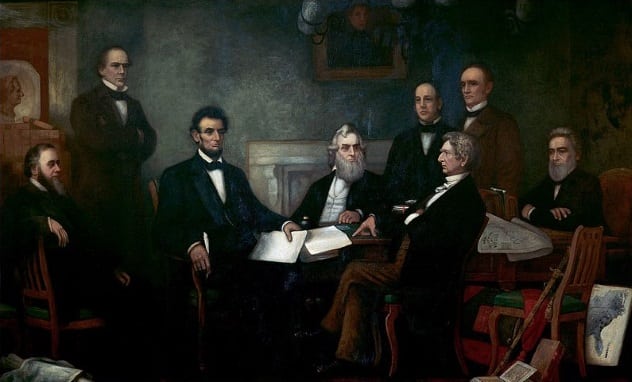
The Emancipation Proclamation is generally viewed as the great act of a heroic leader. It’s treated as the moment that slavery in the US came to an end, the moment when Lincoln proved the Confederates wrong and showed that he really was fighting for freedom and equality.
The Confederates, though, didn’t buy it. To them, the Emancipation Proclamation seemed more like a trick than a declaration of freedom.
Lincoln’s proclamation didn’t actually free slaves across America—in fact, it didn’t free anyone at all. It only affected slaves in states that were in open rebellion.[6] The slaveowning states that were fighting on Lincoln’s side were exempt from the rule. Lincoln was issuing an order that only affected people who didn’t take orders from him in the first place.
Jefferson Davis was convinced that the whole thing was a dirty trick, meant to encourage Confederate slaves to riot. He pointed to a part of Lincoln’s order that told slaves “to abstain from violence unless in necessary self-defense.” This, he said, was a subtle call to African slaves to start killing their Confederate slaveowners.
As far as he was concerned, the Emancipation Proclamation wasn’t a declaration of freedom. It was a call for blood.
4 The Gunfight At The O.K. Corral Was A Police Massacre
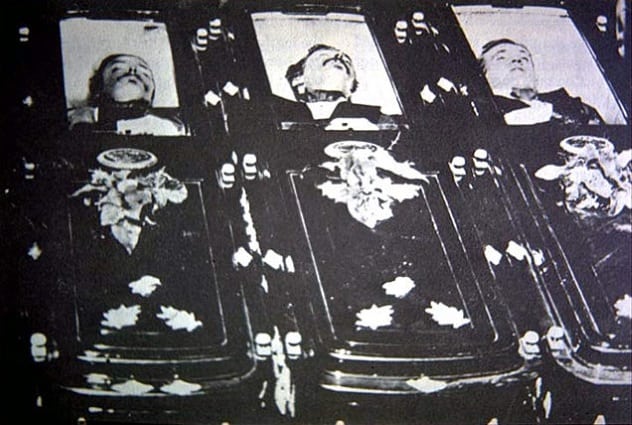
The Wild West has become a story of good against evil. In our imaginations, it’s a place where lawmen stood up against lawlessness, where the good guys wore white and the bad guys wore black. And there’s no bigger symbol of the struggle to bring peace and order to the untamed frontier than Wyatt Earp and the Gunfight at the O.K. Corral.
According to Earp, the shoot-out at the O.K. Corral started when a gang of criminals who had been threatening him and his family were caught illegally carrying guns inside city limits. The Earp brothers told them to put their guns down, the gang opened fire, and the law was left with no choice but to put them down.
But a witness to the gunfight, Billy Allen, told the story a bit differently. The fight started, he claimed, when the Earp brothers pulled out their guns and yelled out, “You sons-of-b—ches, you have been looking for a fight!”
Here’s how the gang reacted, in his words:
Tom McLaury threw his coat open and said, “I ain’t got no arms!” He caught hold of the lapels of his coat and threw it open. William Clanton said, “I do not want to fight!” and held his hands out in front of him. [ . . . ] The firing commenced by the Earp party.[7]
The judge ended up siding with the Earps, but if Allen was telling the truth, it wasn’t a gunfight—it was a massacre.
3 The Philippine-American War Started Because Of Blatant Racism
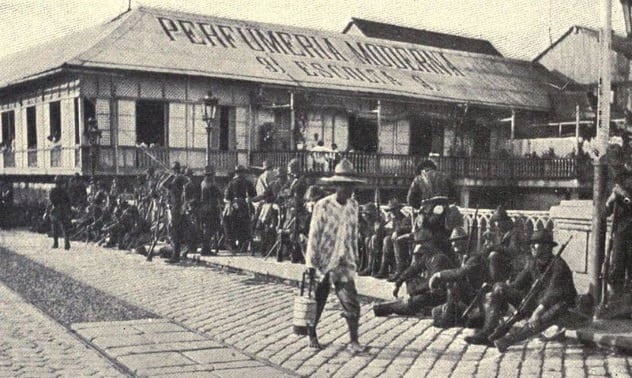
The United States was given control of the Philippines after the Spanish-American War of 1898 and, at the time, weren’t quite sure what to do with it. Their minds were made up, though, when the country broke out into open rebellion.
The Americans believed that they’d been misunderstood. They weren’t like the other colonial countries, they insisted. All they wanted to do was help the Philippines get ready for independence. The Philippines just didn’t give them the chance to show how nice they were.
The Filipinos, though, didn’t just start rebelling for no reason. They say that their rebellion started when American soldiers started showing up on their streets, and they got to see firsthand just how brutally racist they were.
Filipino civilians complained that the first Americans who showed up in their country called them “n—rs” and regularly robbed, raped, and beat them. That’s why they rebelled—not because they were impatient savages but because the Americans made it perfectly clear how they saw them.
There’s a lot of evidence to back up their story, too. Theodore Roosevelt publicly described the Philippines as a “black chaos of savagery and barbarism,” and one soldier stationed in the Philippines wrote home that the war would never have broken out “if the army of occupation would have treated [Filipinos] as people.”[8]
2 The Vietnam War Was Part Of The Vietnamese Battle For Independence
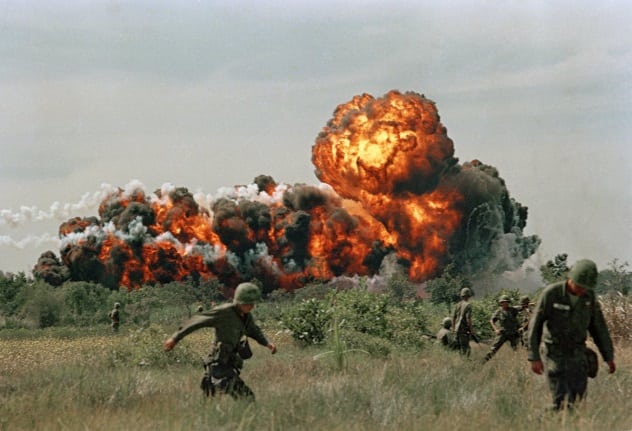
In Vietnam, the war goes by a different name. They call it the “Resistance War against the American Empire to Save the Nation”—and as far they’re concerned, the good guys won.
Their version of the war is pretty simple. As one Vietnamese professor explained it: “Our country was invaded, and we had to fight to protect our country.”[9]
The North Vietnamese viewed the war as a continuation of an ongoing battle for independence that had started with their fight against France in the 1940s. From their point of view, they were simply trying to reunite Vietnam when—for reasons they didn’t fully understand—the Americans started attacking them.
“We were really confused why the Americans tried to invade our homeland,” one resident of Vietnam has said. He recalled his first glimpse of the war: seeing a plane flying overhead and trying to figure out why little metal objects were falling out of it. It wasn’t until they crashed down on his city that he realized he was being bombed.
To the average Vietnamese person, the war was just an unprovoked attack on a country on the verge of reunification. They didn’t understand that Communism had any role in it. As one Vietnamese man has said: “People didn’t even know what Communism was.”
1 The Gulf War Was A Planned Conspiracy That Ruined Iraq
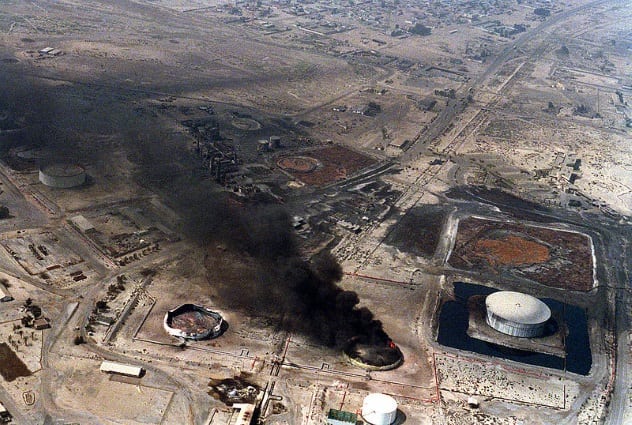
Saddam Hussein insisted that he was baited into attacking Kuwait. The whole Gulf War, as far as he was concerned, was a deliberate conspiracy to crush the Iraqi economy.
The Gulf War came on the heels of a war between Iraq and Iran. Hussein was convinced that he’d saved the Arab world from being conquered by Iran. He insisted that Kuwait and other countries send him money to help fund his fight against Iran, and now that he’d won, he was sure he would come out of the war a hero.
Instead, Kuwait wanted him to pay back the money he’d assumed was a gift. Iraq was too financially drained to pay it, but instead of trying to help, Kuwait manipulated the price of oil, the backbone of the Iraqi economy, to make their recovery impossible.[10]
Hussein insists his intelligence officers intercepted documents showing that the US was behind everything Kuwait was doing and that it was all part of a conspiracy to economically crush Iraq. He insists that he only attacked Kuwait when he ran out of choices—and that, instead of being brutal, he ordered his men to use nonlethal approaches whenever possible.
Whether that’s true or not, like every perspective in this article, is open to debate. But whether the war was an American conspiracy or simply a fair response to Hussein’s cruelty, Iraq ended up getting economically crushed.
As one news correspondent stationed in Iraq put it: “Iraq was a land with the same level of education and healthcare as Greece. [ . . . ] Iraq may be the first country in history to have been forced, by the international community, back down the developmental ladder.”
Read more about the other sides of history on 10 Letters From Everyday People On The Other Side Of History and 10 Great National Heroes Of Our Enemies.

